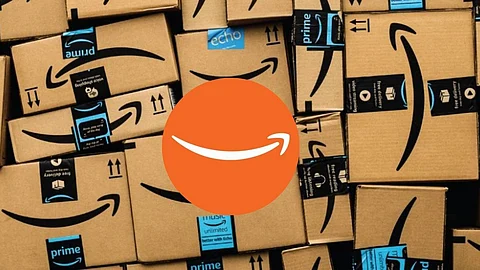

Amazon Technologies has caught a break in its ongoing legal tussle over trademark infringement. The Delhi High Court put a temporary pause on a single-judge order that had directed the company to cough up nearly ₹340 crore in damages last week. This amount was awarded to UK-based Lifestyle Equities, the owner of the Beverly Hills Polo Club (BHPC) brand, over alleged misuse of its trademark.
The High Court division bench granted the stay without insisting on any pre-deposit from Amazon. That said, Amazon has been asked to give an undertaking: if the final judgment goes against it, the company will pay up.
Back in 2020, Lifestyle Equities dragged Amazon Technologies and a few others to court, claiming they were using a deceptively similar logo to the BHPC brand on clothing and other items sold on Amazon platforms. According to the company, Amazon’s own private label, Symbol, carried the infringing logo, and the products were being sold by Cloudtail India—a prominent seller on Amazon.in at the time.
That same year, the court issued an interim injunction stopping Amazon and Cloudtail from using the mark and told them to take down the listings. Amazon Technologies didn’t appear during the proceedings, which led the court to continue the case without its input.
While Amazon stayed quiet in the courtroom, Cloudtail admitted to selling infringing items between 2015 and July 2020. They made about ₹23.9 lakh in sales with around 20% profit margin.
Though Cloudtail offered to settle, mediation talks failed. Eventually, the court passed a decree against them and ordered ₹4.78 lakh in damages to Lifestyle Equities.
The real turning point came on February 25, 2025, when the single-judge bench ruled against Amazon. The court said Amazon’s tight commercial relationship with Cloudtail made it more than just a middleman. It examined brand licence and distribution agreements between the two and found that Amazon had given Cloudtail broad rights to use its trademarks and branding—weakening Amazon’s claim of being an innocent intermediary.
Around $39 million (₹336 crore approx), broken down into $5 million for brand protection costs and $33.78 million as lost royalty income. Add legal costs on top of that.
Legal experts had called this a landmark ruling. Because it challenged the long-standing claim by e-commerce platforms that they’re just digital marketplaces with no responsibility for what sellers do.
The court said Amazon's internal arrangements and control mechanisms meant it wasn’t off the hook. That made the case a potential precedent for how online platforms are held accountable in the future.